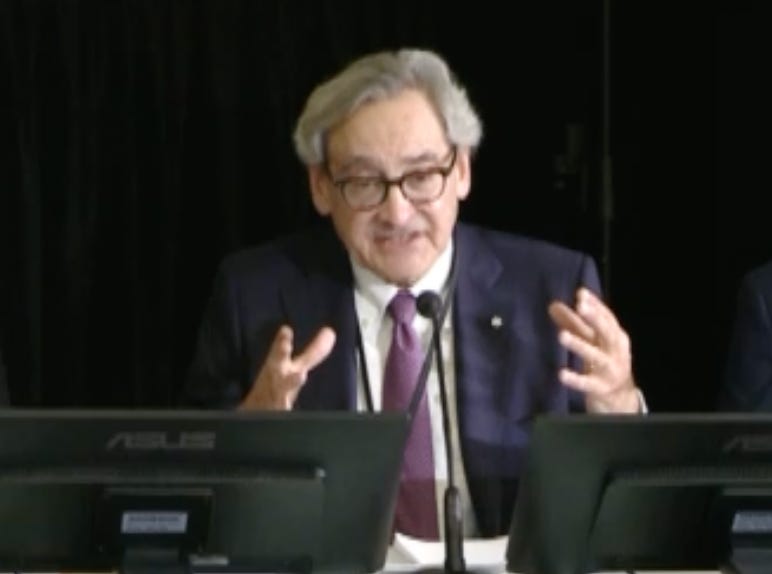You want David Johnston analysis, you’ve come to the wrong place, unless you needed me to tell you to read The Line. I’m supposed to be on vacation, and until I woke up this morning I was happy to stay that way. I’ll add, or reiterate, only this: Just because somebody is the wrong person for a job doesn’t mean the things he writes are necessarily false. If the mess David Johnston describes is real, then somebody should be interested in trying to fix it. Anyone. Bueller.
But we are gathered here today around my table at a café in Europe to consider the remarkable Michael Sabia, who has found new work. La Presse’s intrepid Denis Lessard, who was supposed to be retired, reports that the federal deputy minister of finance will be the new CEO of Hydro Québec, the country’s most interesting energy utility. Suddenly the last year of Canada’s history makes more sense.
For a decade Sabia was the CEO of the Caisse de dépôt et placement du Québec, the province’s massive public-sector pension fund. It was a surprise when he went there. He’d made his career outside Quebec, federal mandarin, CEO of Bell, CFO of CN. (Bell was in Montreal, I’m reminded, but to my mind still outside Quebec Inc.) His French got better fast but it was a big adjustment.
In 2015 the Caisse launched studies into the construction of a new light-rail transit system around Montreal, the so-called REM. Odd work for a pension plan, but the idea was that the Caisse could take an ownership stake in profitable public works, in hopes of a better return for members. In 2016 the new Trudeau government appointed an Advisory Council on Economic Growth, whose members included Dominic Barton and Michael Sabia. The council’s advice included a new Canada Infrastructure Bank, which would help attract pension-fund money toward public works. Its first investment was the REM. In fact the investment was announced before the Bank had a CEO and a day before Quebec’s embattled Liberal government called an election.
The Liberals lost. Sabia was just getting started. A year later he left the CDPQ to run the Munk School at the University of Toronto. That was February of 2020. In April he added a title to the Munk post when he became the board chair of… the Canada Infrastructure Bank. By December he had left both positions to become the new deputy minister to a new finance minister. I remarked on his rapid career changes. “It’s fair to wonder whether Sabia himself retains the habits of sustained engagement that made him what he is today,” I wrote. Turns out the answer was yes! But we’re getting to that.




